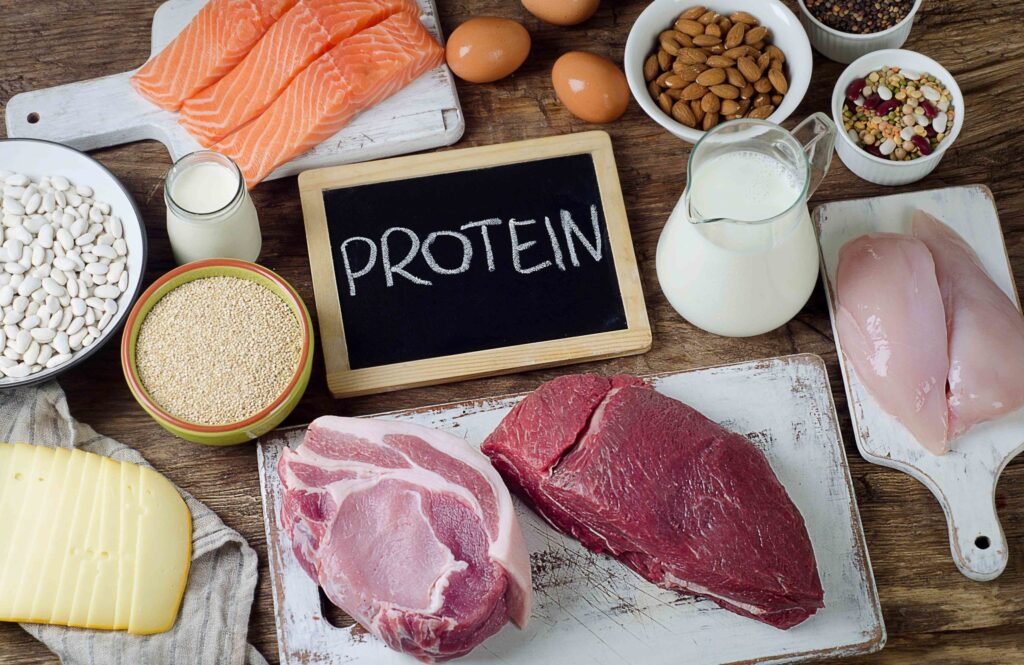
Exploring Different Protein Sources
Introduction
Ever feel like you’re swimming in a sea of dietary options? You’re not alone! In today’s health-conscious world, protein supplements have become a go-to for many, from fitness buffs to older adults looking to maintain their vitality. And with the protein supplement industry in the U.S. projected to skyrocket from $2.07 billion in 2021 to a jaw-dropping $10.80 billion by 2030, it’s crucial to know what you’re getting into before jumping on the protein bandwagon. So, what do you really need to know about protein supplements? Let’s break it down together, exploring the different types, their potential benefits and pitfalls, and help you navigate your options based on your unique needs.
The Variety and Composition of Protein Supplements
Exploring Different Protein Sources
Protein supplements come in all kinds of formats—think powders, bars, and even convenient ready-to-drink shakes. Here are some of the most common sources you’ll encounter:
– Whey Protein: This milk-derived favorite is loved for its quick absorption and impressive nutrient profile.
– Casein Protein: Another milk-based option, casein digests slowly, making it a nice pick for those overnight recovery moments.
– Plant-Based Proteins: If you’re leaning towards a vegetarian or vegan lifestyle, you can’t go wrong with options like soy, pea, rice, and hemp protein.
Did you know that protein powders alone make up about 56% of the market? This shift towards easy-to-consume formats shows that many are prioritizing convenience. Understanding these sources will help you pick the right supplement that fits your dietary preferences and health goals.
Actionable Tips:
– Identify Your Goals: What are you hoping to achieve with protein supplementation? Is it muscle gain, managing weight, or perhaps recovery after those tough workouts?
– Read Labels: Make a habit of checking for products that include as few additives and preservatives as possible. Your body will thank you!
Health Benefits of Protein Supplements
Boosting Muscle Mass and Enhancing Recovery
Integrating protein supplements into your routine comes with a range of health benefits:
– Muscle Growth: Research backs it up—getting enough protein is key to building muscle, particularly when paired with strength training.
– Faster Recovery: Chowing down on protein after your workouts can help repair muscles and ease that post-exercise soreness.
For those who are physically active, protein needs can fluctuate between 1.2 to 2.0 grams of protein per kg of body weight. Timing your protein consumption—before or after your workouts—can really ramp up muscle synthesis and recovery.
Supporting Cardiovascular Health
Some protein sources can also give your heart a helping hand:
– Whey Protein: Regular intake has been linked to lower systolic blood pressure and can boost insulin sensitivity.
– Soy Protein: This option is known for lowering LDL cholesterol and triglycerides, making it a smart choice for heart health.
Actionable Tips:
– Optimize Timing: If you’re looking to recover like a pro, try to have a protein shake right after your workouts.
– Explore Varieties: If you have dietary restrictions, don’t shy away from plant-based proteins; they are packed with benefits too!
Risks and Considerations
Steering Clear of Excess Intake
While protein supplements can do wonders, it’s crucial to avoid going overboard. Here are some potential health risks linked to excessive protein consumption:
– Chronic Kidney Disease: Too much protein can lead to hyperfiltration in your kidneys, raising the risk of chronic issues.
– Calcium Excretion: High-protein diets may cause elevated urinary calcium loss, which might be concerning for individuals with certain health conditions.
Finding the Right Balance
Striking the right amount of protein intake is essential, especially for healthier populations like older adults or those with pre-existing health issues who may need special dietary care.
Actionable Tips:
– Consult a Healthcare Professional: Before making any big changes to your diet, especially when it comes to protein, it’s smart to chat with your doctor or a registered dietitian.
– Focus on Whole Foods: For many, getting protein from whole food sources is more than adequate!
Practical Applications of Protein Supplementation
Recommendations Just for You
– For Athletes: Consider turning to whey protein for a quick recovery fix and muscle-building power right after your workouts.
– For Older Adults: Pay attention to both the quality and quantity of your protein—focusing on high-quality proteins will help maintain your muscle mass and overall health.
Step-by-Step Guidance:
1. Determine Your Protein Needs: Use a reliable calculator to figure out how much you should be aiming for based on your weight and activity level.
2. Choose Quality Products: Look for trusted certifications (like NSF Certified for Sport) that ensure you’re getting safe and effective supplements.
3. Incorporate Gradually: Start by adding one supplement to your daily routine, and take note of how your body reacts.
Conclusion
Navigating the world of protein supplements may feel overwhelming at times, but with the right information, you’re in a great position to make informed choices. Understanding the variety of sources, their unique benefits, and the risks involved means you can tailor your health and fitness journey effectively. So, are you ready to optimize your protein intake? Feel free to share your thoughts in the comments below or dive deeper into our blog for more stories on dietary supplements and nutrition. Remember, making informed decisions is the first step towards a healthier lifestyle!
Hashtags: #protein #health #supplements #sources #muscle #like #dietary #benefits #recovery #right #based #after #workouts #getting #help
